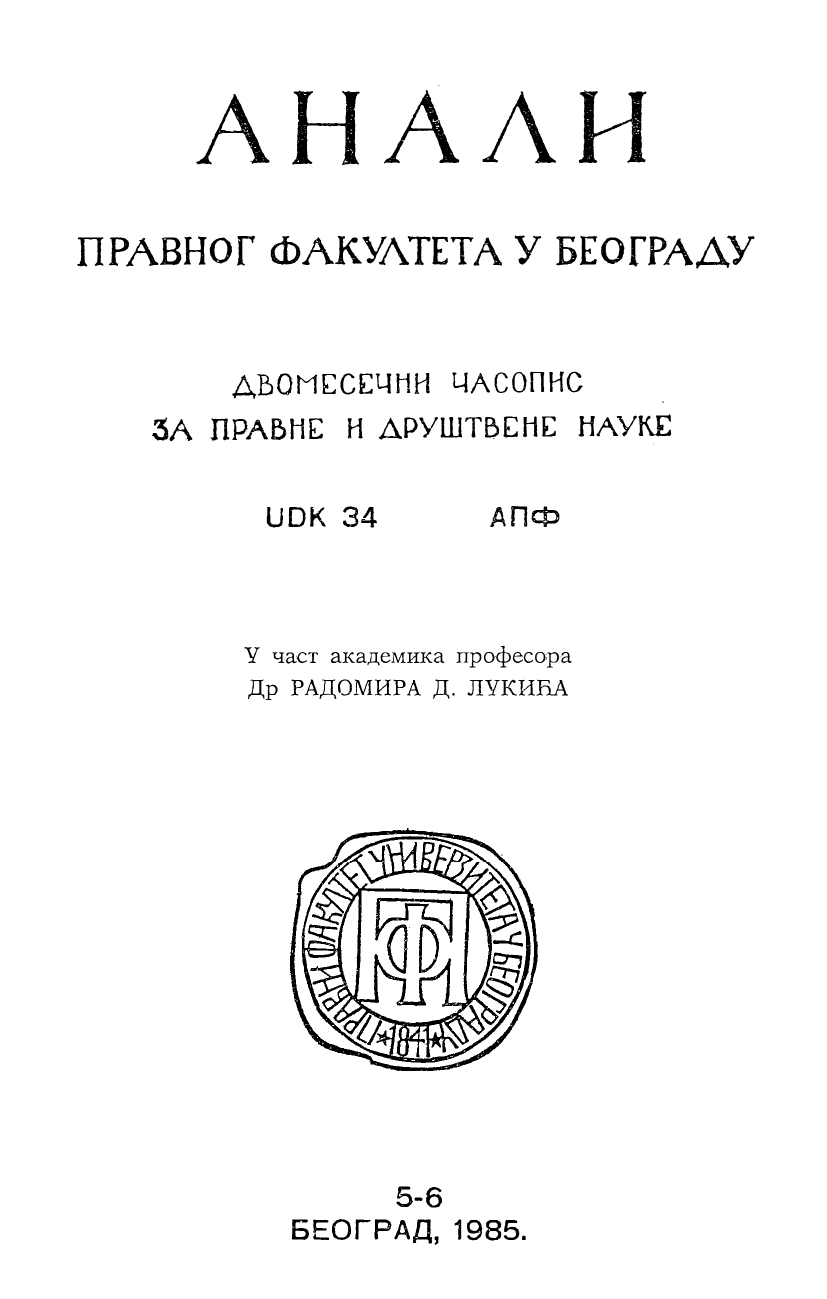О НОРМАТИВНОМ МЕТОДУ — ЈОШ ЈЕДНОМ
ONCE AGAIN ON THE NORMATIVE METHOD
Author(s): Zdravko GreboSubject(s): Philosophy, Law, Constitution, Jurisprudence, Philosophical Traditions, Marxism
Published by: Правни факултет Универзитета у Београду
Summary/Abstract: The basic aim of the present study is the attempt to assure the efficiency of the classical normative method in conceiving the law in its totality or, in other words, to determine that within the framework of marxist conception of law, in addition to other ways (methods), there exists a legitimate space for implementing the normative method. This is because the multi-dimensionality of the essence of law shows, through one of its significant parts, its normative face. In his study the author does not deal with normativism, which in quite a specific sense is not a methodology either, but rather a philosophical doctrine. He does not elaborate along these lines the relationship with marxism, which in one of its aspects is also the same as above, but cannot be connected with the issue at the level of relevant conception. In the above mentioned goal the author attempts at a summary reconstruction of Marx's ideas of law. On the ground of that he comes to the supposition of three dimensions or three degrees of the »legal phenomenon«, namely: (i) law as a social reality (social relationship); (ii) law as a spiritual phenomenon (i.e. norm); and (iii) law as an ideology (i.e. value). In his conclusions the author affirms that normative analysis and the corresponding methodological procedures are (at least) necessary apparatus of the second level of the legal phenomenon. Such an approach naturally does not suffice in studying the total phenomenon of legality, which should inevitably be the marxist methodological foundation of the first degree. The results obtained exclusively on the ground of a normative analysis are not »true«, since they are expressed in only one dimension, and are of »one-factor type« in their nature. But they are correct in »the part« which is a constitutive element of the entirety which is »true«. Omitting any of the parts of that entirety may end up in reductionism of any kind. Therefore negating or disregarding the »normative conception« points at least to the still un systematized foundations of the marxist theory of law.
Journal: Анали Правног факултета у Београду
- Issue Year: 33/1985
- Issue No: 5-6
- Page Range: 582-589
- Page Count: 8
- Language: Serbian

